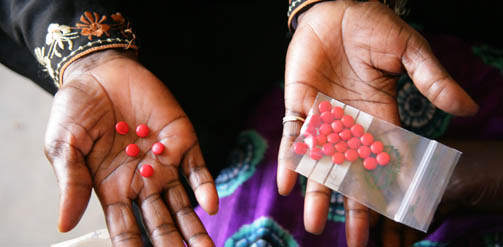In 2015 the WHO Director General characterised the global challenge of antimicrobial resistance (AMR), which includes antibiotic resistance, as: ‘threatening the very core of medicine and the sustainability of an effective global public health response to the enduring threat of infectious diseases’. In today’s interconnected world, where drug resistant infections travel as quickly as planes do, AMR is one of the most pressing global health challenges facing high, mid and low-income countries alike.

As social scientists, researchers at IDS is committed to working in partnership with scientists across disciplines to understand better how to effectively design and implement measures to tackle antibiotic resistance in different contexts, in different countries around the world.
World Antibiotic Awareness Week
For this week’s World Antibiotic Awareness Week (13-19 November 2017), researchers at IDS and Future Health Systems have published new research on Antimicrobial resistance and universal health coverage the global investment needed to build resilient health systems in order to address growing drug resistance long-term. It argues that the success of the WHO’s Global Action Plan on antimicrobial resistance and the Sustainable Development Goal 3 on healthy lives and wellbeing are interdependent and neither initiative is likely to succeed in isolation from the other.
Cross-government cooperation needed
IDS is also encouraging the UK government to play a critical role in building international partnerships to tackle AMR and to build on the UK’s work on antibiotic resistance across government departments.
Annie Wilkinson, Research Fellow in health and nutrition at the Institute of Development Studies, says: “Tackling the urgent problem of antimicrobial resistance (AMR) – including antibiotic resistance – requires an integrated, global approach. Discovering new drugs or monitoring and restricting the use of existing ones, won’t be enough.
“Investing in Universal Health Care and resilient health systems around the world is essential to addressing growing drug resistance, as is the need to simultaneously address antibiotic use within animal health and the agricultural industry.
“It is in all of our interests to solve AMR and to work with other countries to do the same. The UK should build on the good work being led by the Department of Health and DFID to foster the international partnerships between governments, the private sector and civil society that are critical to solving the crisis long-term.”
Photo credit: Giacomo Pirozzi / Panos
